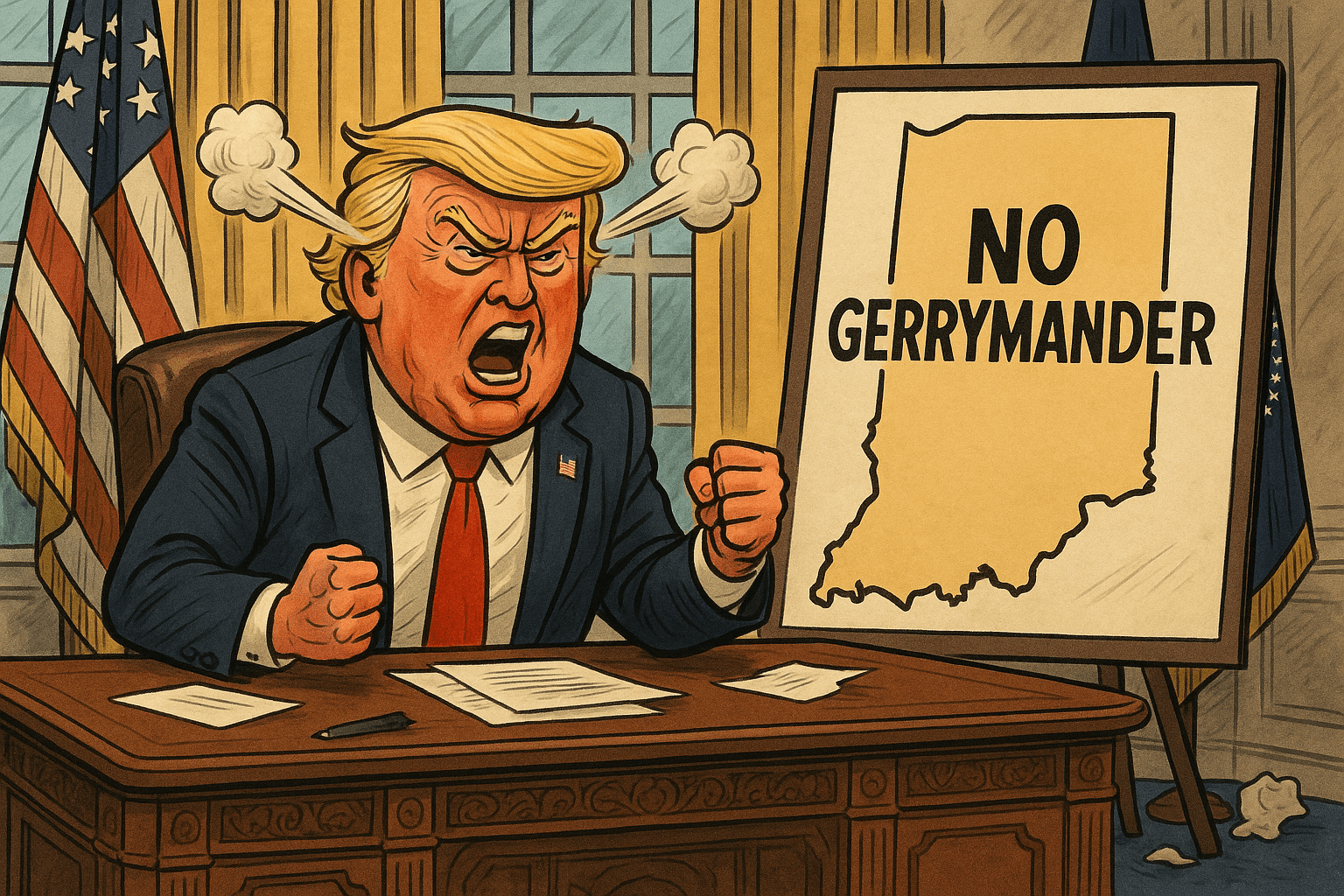Oklahoma GOP Fails To Block Open Primaries Initiative from Going Before Voters

OKLAHOMA CITY - The Oklahoma Supreme Court on Tuesday unanimously rejected a challenge to a proposed ballot initiative that would open taxpayer-funded primary elections to all candidates and voters, regardless of party affiliation – paving the way for the signature petition process to begin.
Oklahoma currently uses a closed partisan primary system, which denies roughly 466,000 registered independent voters a voice because they are not registered with the Democratic or Republican Party.
Primary elections in Oklahoma are critical to the overall outcome of elections. Former Republican state Sen. A.J. Griffin has pointed out that 86% of elections in the state either don’t have a general election or the general election is inconsequential.
Oklahoma United officially filed State Question 836 (SQ 836) in January. The initiative would do away with publicly funded party primaries and replace them with a nonpartisan open primary system that allows all voters and candidates, regardless of party, to participate on a single ballot.
Then, the top vote-getters (in this case the top two) move on to a guaranteed general election. This type of system is in place at the state level in California and Washington. In Alaska, the top 4 candidates advance to the general election under a similar nonpartisan system.
The initiative was challenged in court by the Oklahoma Republican Party and some of its members. They argued that the initiative summary (called the “gist”) was misleading, and the initiative threatened voters’ rights to association.
In an 8-0 decision, the state Supreme Court disagreed – and ruled that the challenge was premature.
“The People’s right to propose law and amendments to the Oklahoma Constitution through the initiative process is precious, and any doubt as to the legal sufficiency of an initiative petition should be resolved in its favor,” Justice Douglas Combs wrote in the court’s opinion.
The campaign for SQ836 is now clear to gather petition signatures. It will need nearly 173,000 signatures to qualify for the ballot.
“State Question 836 is about making sure every voter has a voice in our elections, giving our voters more choices, and making the system fair for everyone, regardless of their party affiliation,” said Tony Stobbe, whose name is on the initiative’s filing with the secretary of state.
Today’s ruling is a victory for Oklahoma voters and a defeat for the insiders and power-brokers who benefit from today’s closed, exclusionary primary process.”
Stobbe added that signature gathering will begin in the next few weeks.
This wasn’t the only significant win handed to the initiative by the court. It was also decided this week that a new law that places limitations and restrictions on the petition gathering process won’t be applied retroactively to SQ836 – at least right now.
The law, SB 1027, made a few substantial changes to the signature gathering process. Most notably, the law caps the number of signatures that can be collected in any individual county: 11.5% of votes cast in the most recent gubernatorial election for statutory changes, and 20.8% for constitutional amendments.
Those who argued for this change said it was about bolstering the influence of rural voters. However, Oklahoma had the lowest voter turnout in 2024, meaning the number of signatures that can be collected in every county is small from the start.
The Oklahoma Policy Institute found in June that the law will exclude a substantial share of the registered voting population, regardless of whether citizens live in an urban metropolitan area or a rural jurisdiction. The institute found:
When applying SB 1027’s formula statewide, its requirement would exclude 2.2 million registered voters (or 94.4% of registered voters) from signing a petition for statutory amendments; it would exclude 2.1 million registered voters (or 89.8% of registered voters) from signing a petition for constitutional amendments.”
Oklahoma United led a lawsuit to prevent SB 1027’s implementation, arguing that SQ836 was filed long before the law’s passage. The court granted plaintiffs temporary relief – but did not stop it from taking effect for other initiatives in the middle of legal proceedings.
“We are pleased that the court has granted a stay of enforcement of SB 1027 as it relates to State Question 836,” said Melanie Wilson Rughani of the law firm Crowe Dunlevy, which is representing supporters of SQ836.
“It is an indication that the court takes seriously our argument that SB 1027 unconstitutionally seeks to change the rules of the petition process midstream.”
Opponents of SQ836 have a window to request a rehearing on their challenge to the initiative. Once the period is over, the secretary of state will assign supporters a start date to gather signatures, and they will have 90 days to submit what they need to qualify for the November 2026 ballot.
 Shawn Griffiths
Shawn Griffiths







